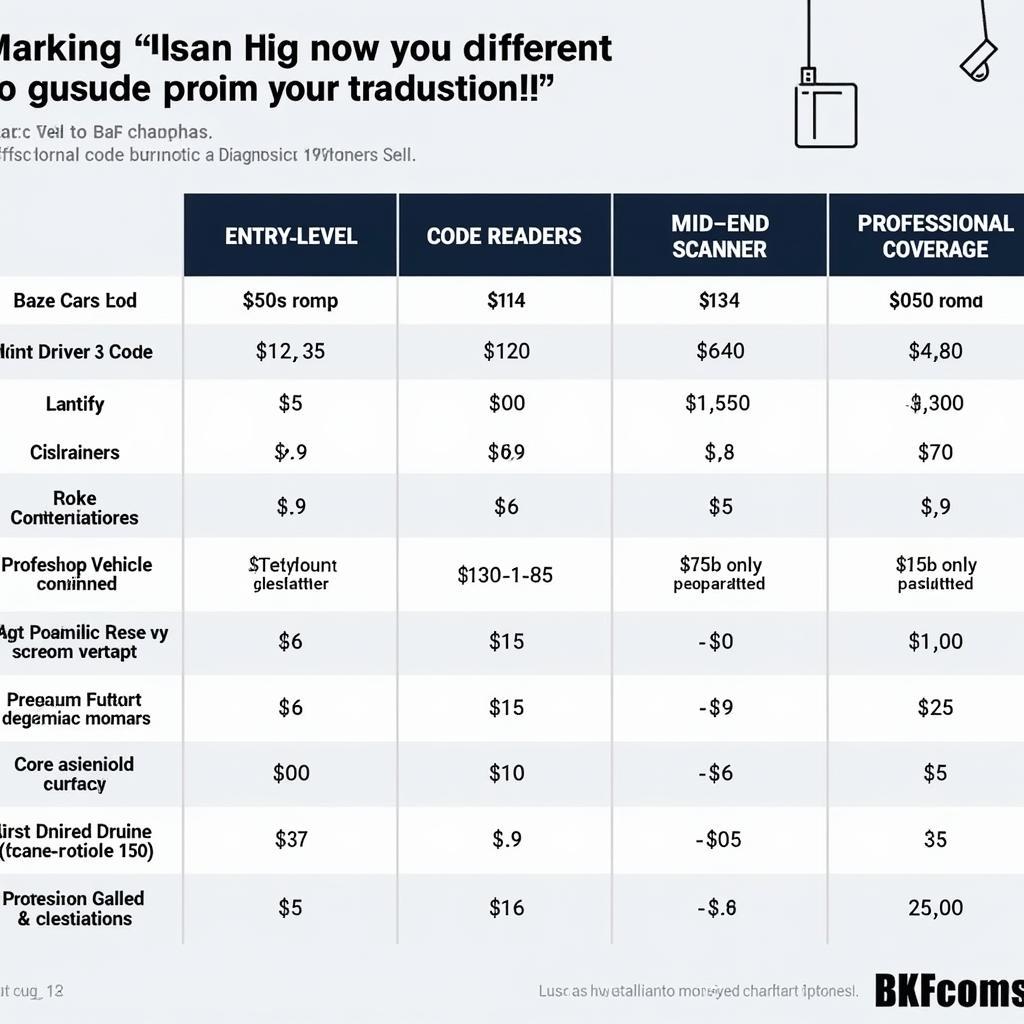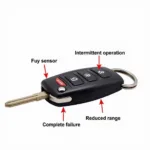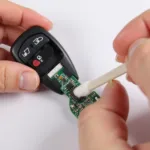Understanding diagnostic car tool prices is crucial for both DIY enthusiasts and professional mechanics. Whether you’re a seasoned technician or a car owner looking to save on repair costs, choosing the right diagnostic tool requires careful consideration of features, functionality, and of course, price. This guide will delve into the factors affecting diagnostic car tool price, different types of tools available, and how to choose the best one for your needs.
Navigating the world of automotive diagnostics can be overwhelming, given the sheer variety of tools available. From basic code readers to advanced professional-grade scanners, the price range can vary significantly. To make an informed decision, you need a clear understanding of what each tool offers and how it aligns with your diagnostic requirements. For instance, someone looking to simply reset a check engine light will have different needs than a professional mechanic diagnosing complex electronic control unit (ECU) issues. You can learn more about running diagnostics on your own car with our guide on how to run a diagnostic on car.
Factors Affecting Diagnostic Car Tool Price
Several factors contribute to the final price of a diagnostic car tool. Understanding these factors will help you make a smart purchase.
- Functionality: Basic code readers are relatively inexpensive and can retrieve basic diagnostic trouble codes (DTCs). More advanced scanners offer live data streaming, bi-directional control, special functions like DPF regeneration, and key programming, which naturally increases their price.
- Vehicle Coverage: Some tools are designed for specific car makes or models, while others offer broader coverage across multiple manufacturers. Tools with wider vehicle compatibility often command a higher price. Specialized tools like the bmw scanner car diagnostic tool cater to a specific brand.
- Software and Updates: The software powering the diagnostic tool plays a significant role in its price. Regular software updates, which are crucial for staying compatible with newer vehicle models, can be subscription-based and add to the overall cost.
- Hardware Quality: Durable and robust hardware design impacts the tool’s lifespan and performance, often reflected in a higher price. This is especially important for professional mechanics who use their tools daily.
- Brand Reputation: Established brands with a history of producing reliable diagnostic tools usually charge a premium for their products.
Types of Diagnostic Car Tools and Their Price Ranges
Diagnostic car tools are available in a wide range of prices, catering to various needs and budgets. Here’s a general overview:
Basic Code Readers (Under $50 – $200)
These entry-level tools primarily read and clear DTCs. They are ideal for DIYers who want to understand why their check engine light is on.
Mid-Range OBD2 Scanners ($200 – $1000)
These scanners offer more advanced features, such as live data streaming and some bi-directional control. They are suitable for car enthusiasts and small workshops. If you’re looking for a reliable and versatile tool in this range, consider the autoboss car diagnostic tool.
Professional-Grade Scan Tools ($1000 – $10,000+)
These high-end tools provide comprehensive diagnostic capabilities, including advanced coding, programming, and specialized functions. They are essential for professional mechanics and dealerships.
How to Choose the Right Diagnostic Car Tool
Choosing the right tool depends on your individual needs and budget. Ask yourself the following questions:
- What types of vehicles will you be working on?
- What level of diagnostic functionality do you require?
- What is your budget?
For professional mechanics working with a wide range of vehicles, a high-end scan tool is a worthwhile investment. DIYers, on the other hand, might find a basic code reader or a mid-range scanner sufficient. Some mechanics offer call out car diagnostic services, and their tool choice will reflect the needs of their mobile business.
Tips for Buying a Diagnostic Car Tool
- Research: Read reviews and compare features before making a purchase.
- Consider Future Needs: Think about your future diagnostic needs and invest in a tool that can grow with you.
- Check for Updates: Ensure the tool offers regular software updates to stay compatible with new car models.
- Look for Warranty and Support: A good warranty and reliable customer support are essential.
The bdm100 universal car diagnostic tool is a good example of a versatile tool suitable for various applications.
Conclusion
Understanding diagnostic car tool prices and features is crucial for making an informed purchase. Whether you’re a DIY enthusiast or a seasoned professional, choosing the right tool can significantly impact your diagnostic capabilities and save you money in the long run. By carefully considering your needs, budget, and the factors influencing price, you can invest in a diagnostic tool that provides accurate results and enhances your automotive repair experience. Remember to weigh the diagnostic car tool price against its features and long-term value.
FAQ
-
What is the cheapest diagnostic car tool?
Basic code readers can be found for under $50. -
What is the most expensive diagnostic car tool?
High-end professional scan tools can cost upwards of $10,000. -
Do I need a professional scan tool?
Not necessarily. A basic code reader or mid-range scanner may suffice for DIYers. -
How often do diagnostic tools need updates?
This varies by manufacturer, but typically updates are released several times a year. -
Can I use a diagnostic tool on any car?
Some tools are vehicle-specific, while others offer broader coverage. -
What is the best diagnostic car tool for beginners?
A basic code reader or a mid-range OBD2 scanner is a good starting point. -
Where can I buy a diagnostic car tool?
Diagnostic tools can be purchased online, at auto parts stores, and from specialized retailers.
Common Diagnostic Scenarios
- Check Engine Light: A diagnostic tool can help identify the cause of a check engine light.
- Performance Issues: Diagnostic tools can help pinpoint problems with engine performance, such as misfires or fuel delivery issues.
- Transmission Problems: Scanners can detect transmission faults and help diagnose shifting problems.
- ABS and Airbag Issues: More advanced tools can diagnose problems with the ABS and airbag systems.
Further Reading
For more information on specific diagnostic tools, check out our reviews on the Autoboss car diagnostic tool and the BDM100 universal car diagnostic tool. You can also learn more about running diagnostics on your own car with our guide on how to run a diagnostic on car. If you need professional diagnostic assistance, consider a call out car diagnostic service. Our article on the BMW scanner car diagnostic tool offers valuable insights for BMW owners.
Need Help? Contact us on WhatsApp: +1(641)206-8880, or Email: [email protected]. We have 24/7 customer support.



